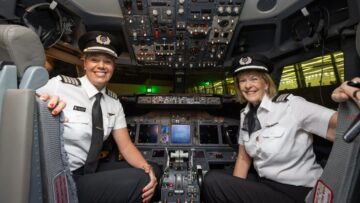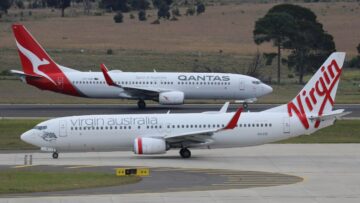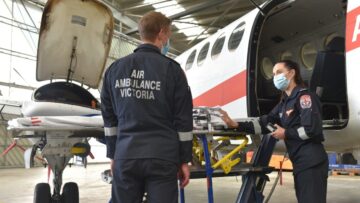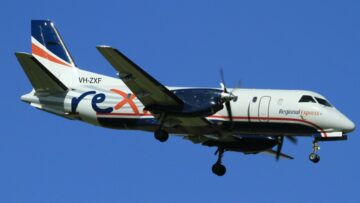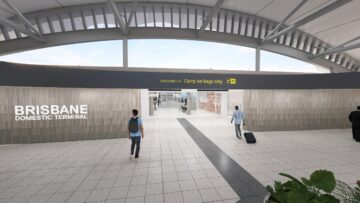
Australia’s Air Traffic Control union has directly contradicted Airservices’ insistence that it has enough staff following last week’s effective shutdown of airspace.
Civil Air accused the organisation responsible for managing Australia’s skies of a “constant reliance on overtime”, which it argued had led to tiredness and work/life balance issues among employees.
The union’s intervention comes after Airservices said last week’s shutdown on the east coast was due to a “short-term” and “unplanned” leave of controllers.
It was the latest in a long line of controversies that have seen Airservices insist it has more than enough staff to operate its network, despite reports emerging of 340 instances of “uncontrolled airspace” from June to April 2023.
In a new statement issued to Australian Aviation, Civil Air said that in July 2021, Airservices offered a Retirement Incentive Scheme (RIS) to its air traffic services staff, with 138 employees taking up the offer, at least 124 of whom were operational ATCs. In a statement, the union estimated this removed 13.7 per cent of Australia’s ATCs from rosters.
“Personal leave is a direct result of removing workforce resilience (eg. RIS), traffic returning to pre-COVID levels earlier than anticipated and the constant requirement for overtime,” Civil Air said.
“At the time of the RIS, Civil Air wrote to Airservices to voice our concerns that it would remove experienced ATC staff from rosters across the country. In response, Airservices advised Civil Air that they would not jeopardise safety and also advised that Workforce Deployment ‘had a plan’ for staffing.”
PROMOTED CONTENT
In a statement, an Airservices spokesperson pointed out that air traffic has not yet returned completely to pre-COVID levels, citing BITRE data. The organisation also said that delays across South-East Queensland and NSW last week were caused by “short-term, unplanned-leave absences”.
“Airservices managed this issue by rerouting aircraft around the impacted airspace, causing minimal delays. Full air traffic management network service resumed as of 1.30pm Thursday, 29th June,” the spokesperson said.
“Airservices is continuing to invest in our workforce across Australia, including by recruiting and training new ATCs nationwide.
“Airservices is enhancing its service resilience by recruiting more than 50 ATC trainees nationwide in the next three months to add further depth to our ATC rosters. A total of 80 ATCs are due in FY2024.”
Civil Air, however, said that “unplanned leave” was not the problem and that Airservices was shifting blame away from its own “lack of workforce planning and resource allocation”.
“The airlines have failed to admit that their own staff reductions have led to outages and industrial action that affect their services. Further, it is relevant to note that ATCs have a regulatory requirement not to work unless medically fit for duty,” the union said.
“Data obtained by Civil Air demonstrates a very clear shortfall in the number of required staff, with recorded overtime hours far exceeding the number of hours lost to unplanned leave. Covering unfilled shifts requires our members to work overtime and thus reduces the number of available staff to cover any subsequent personal leave taken.”
- SEO Powered Content & PR Distribution. Get Amplified Today.
- PlatoData.Network Vertical Generative Ai. Empower Yourself. Access Here.
- PlatoAiStream. Web3 Intelligence. Knowledge Amplified. Access Here.
- PlatoESG. Automotive / EVs, Carbon, CleanTech, Energy, Environment, Solar, Waste Management. Access Here.
- BlockOffsets. Modernizing Environmental Offset Ownership. Access Here.
- Source: https://australianaviation.com.au/2023/07/australias-air-traffic-control-is-understaffed-argues-union/
- :has
- :is
- :not
- $UP
- 1
- 13
- 2021
- 2023
- 50
- 7
- 80
- a
- accused
- across
- Action
- add
- admit
- affect
- After
- AIR
- aircraft
- Airlines
- airspace
- also
- among
- an
- and
- Anticipated
- any
- April
- ARE
- argued
- Argues
- around
- AS
- At
- Australia
- Australian
- Australian Aviation
- available
- aviation
- away
- Balance
- by
- caused
- causing
- clear
- Coast
- COM
- comes
- completely
- Concerns
- constant
- continuing
- control
- country
- cover
- covering
- data
- delays
- demonstrates
- deployment
- depth
- Despite
- direct
- directly
- due
- Earlier
- East
- east coast
- Effective
- emerging
- employees
- enhancing
- enough
- estimated
- experienced
- Failed
- far
- fit
- following
- For
- from
- full
- further
- had
- Have
- HOURS
- However
- HTTPS
- impacted
- in
- Incentive
- Including
- industrial
- intervention
- Invest
- issue
- Issued
- issues
- IT
- ITS
- jpg
- July
- june
- Last
- latest
- least
- Leave
- Led
- levels
- Line
- Long
- lost
- managed
- management
- managing
- Members
- minimal
- months
- more
- Nationwide
- network
- New
- next
- note
- number
- obtained
- of
- offer
- offered
- on
- operate
- operational
- organisation
- our
- out
- Outages
- own
- per
- personal
- planning
- plato
- Plato Data Intelligence
- PlatoData
- pre-COVID
- Problem
- recorded
- recruiting
- reduces
- reductions
- regulatory
- relevant
- reliance
- remove
- Removed
- removing
- Reports
- required
- requirement
- requires
- resilience
- resource
- response
- responsible
- result
- retirement
- returning
- Safety
- Said
- scheme
- seen
- service
- Services
- SHIFTING
- Shifts
- shortfall
- shutdown
- skies
- spokesperson
- Staff
- staffing
- Statement
- subsequent
- taken
- taking
- than
- that
- The
- their
- they
- this
- three
- thursday
- time
- to
- Total
- traffic
- Training
- union
- very
- Voice
- was
- were
- which
- with
- Work
- Workforce
- would
- yet
- zephyrnet

